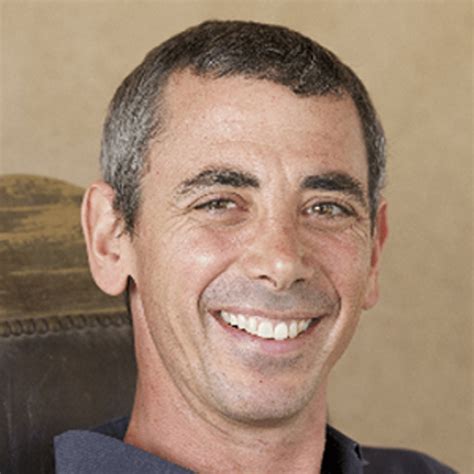A Quote by Steven Kotler
Instead, over the past thirty years, in the world of action and adventure sports, in situations where asses really were on the line, the bounds of the possible have been pushed further and faster than ever before in history. We've seen near-exponential growth in ultimate human performance, which is both hyperbolic paradox and considerable mystery. Somehow, a generation's worth of iconoclastic misfits have rewritten the rules of the feasible, not just raising the bar but often obliterating it altogether. And this brings up one final question: Where-if anywhere-do our actual limits lie?
Quote Topics
Action
Actual
Adventure
Altogether
Anywhere
Bar
Been
Before
Both
Bounds
Brings
Considerable
Ever
Exponential
Exponential Growth
Faster
Feasible
Final
Further
Generation
Growth
History
Human
Iconoclastic
Instead
Just
Lie
Limits
Line
Misfits
Mystery
Near
Often
Our
Over
Over The Past
Paradox
Past
Performance
Possible
Pushed
Question
Raising
Raising The Bar
Really
Rules
Seen
Situations
Somehow
Sports
Than
Thirty
Thirty Years
Ultimate
Up
Were
Which
World
Worth
Years
Related Quotes
If Mother Culture were to give an account of human history using these terms, it would go something like this: ' The Leavers were chapter one of human history -- a long and uneventful chapter. Their chapter of human history ended about ten thousand years ago with the birth of agriculture in the Near East. This event marked the beginning of chapter two, the chapter of the Takers. It's true there are still Leavers living in the world, but these are anachronisms, fossils -- people living in the past, people who just don't realize that their chapter of human history is over. '
And yet, strange to say, now that this truth is recognized by most cultivated people — now that the beneficent working of the survival of the fittest has been so impressed on them that, much more than people in past times, they might be expected to hesitate before neutralizing its action — now more than ever before in the history of the world, are they doing all they can to further survival of the unfittest!
The steep ride up the and down the energy curve is the most abnormal thing that has ever happened in human history. Most of human history is a no-growth situation. Our culture is built on growth and that phase of human history is almost over and we are not prepared for it. Our biggest problem is not the end of our resources. That will be gradual. Our biggest problem is a cultural problem. We don't know how to cope with it.
You often hear when you talk to guys in our industry, that this is my personality, I just turn the volume up, but over the years, I've really become me. No volume turned up, no nothing. I've been able to go out there and just be myself. It's through solid performance after solid performance that people just take you for who you are.
We really are living in an age of information overload. Google estimates that there are 300 exabytes (300 followed by 18 zeros) of human-made information in the world today. Only four years ago there were just 30 exabytes. We've created more information in the past few years than in all of human history before us.
Our principal constraints are cultural. During the last two centuries we have known nothing but exponential growth and in parallel we have evolved what amounts to an exponential-growth culture, a culture so heavily dependent upon the continuance of exponential growth for its stability that it is incapable of reckoning with problems of non-growth.
The question of whether world peace will ever be possible can only be answered by someone familiar with world history. To be familiar with world history means, however, to know human beings as they have been and always will be. There is a vast difference, which most people will never comprehend, between viewing future history as it will be and viewing it as one might like it to be. Peace is a desire, war is a fact; and history has never paid heed to human desires and ideals.
Although humans have existed on this planet for perhaps 2 million years, the rapid climb to modern civilization within the last 200 years was possible due to the fact that the growth of scientific knowledge is exponential; that is, its rate of expansion is proportional to how much is already known. The more we know, the faster we can know more. For example, we have amassed more knowledge since World War II than all the knowledge amassed in our 2-million-year evolution on this planet. In fact, the amount of knowledge that our scientists gain doubles approximately every 10 to 20 years.
Life is two things. Life is morality – life is adventure. Squire and master. Adventure rules, and morality looks up the trains in the Bradshaw. Morality tells you what is right, and adventure moves you. If morality means anything it means keeping bounds, respecting implications, respecting implicit bounds. If individuality means anything it means breaking bounds – adventure.
Jesus must have been a really great artist in creating enemies because he was only thirty-three when he was crucified, and there were only three years of work because he appeared at the age of thirty. Up to that time he was with the mystery schools, going around the world to Egypt, to India, and the possibility is even to Tibet and to Japan.
The trouble with the new world we have watched being created over the past decade is that it sees no further than money. People have always been obsessed with money, of course - greed is as old as history. But when the institutions that govern all our lives forget there was ever anything else, then it gets dangerous.


































